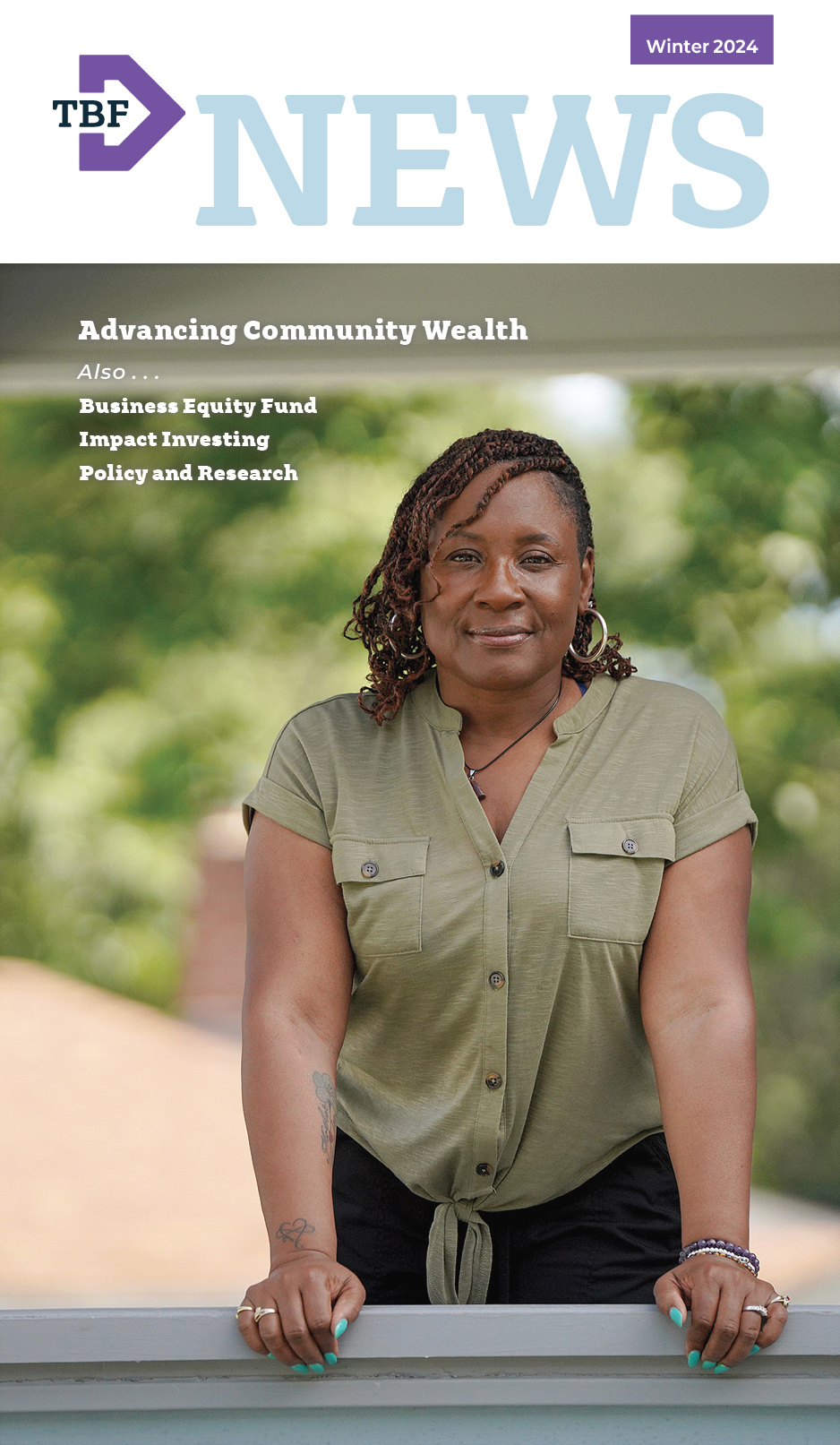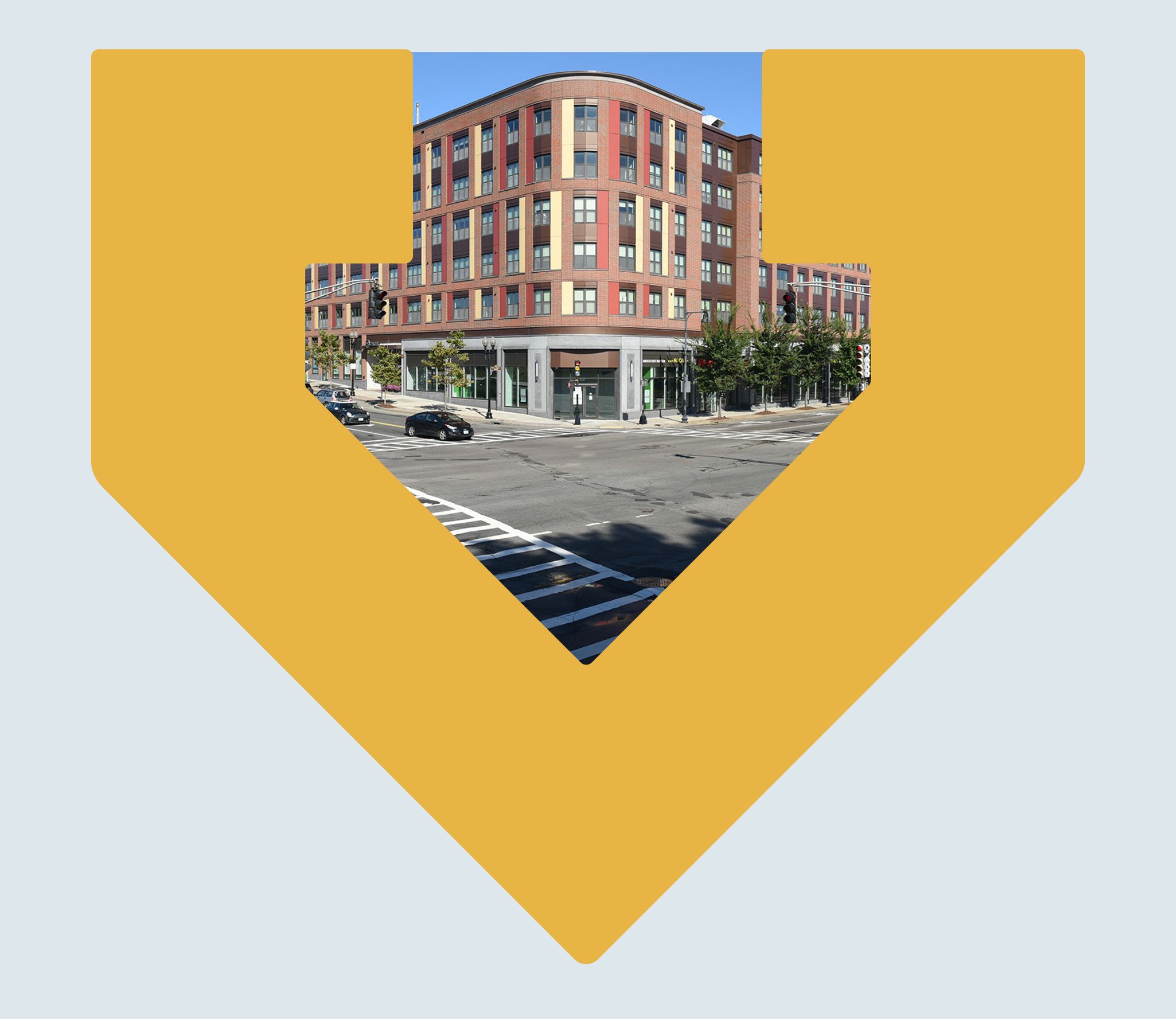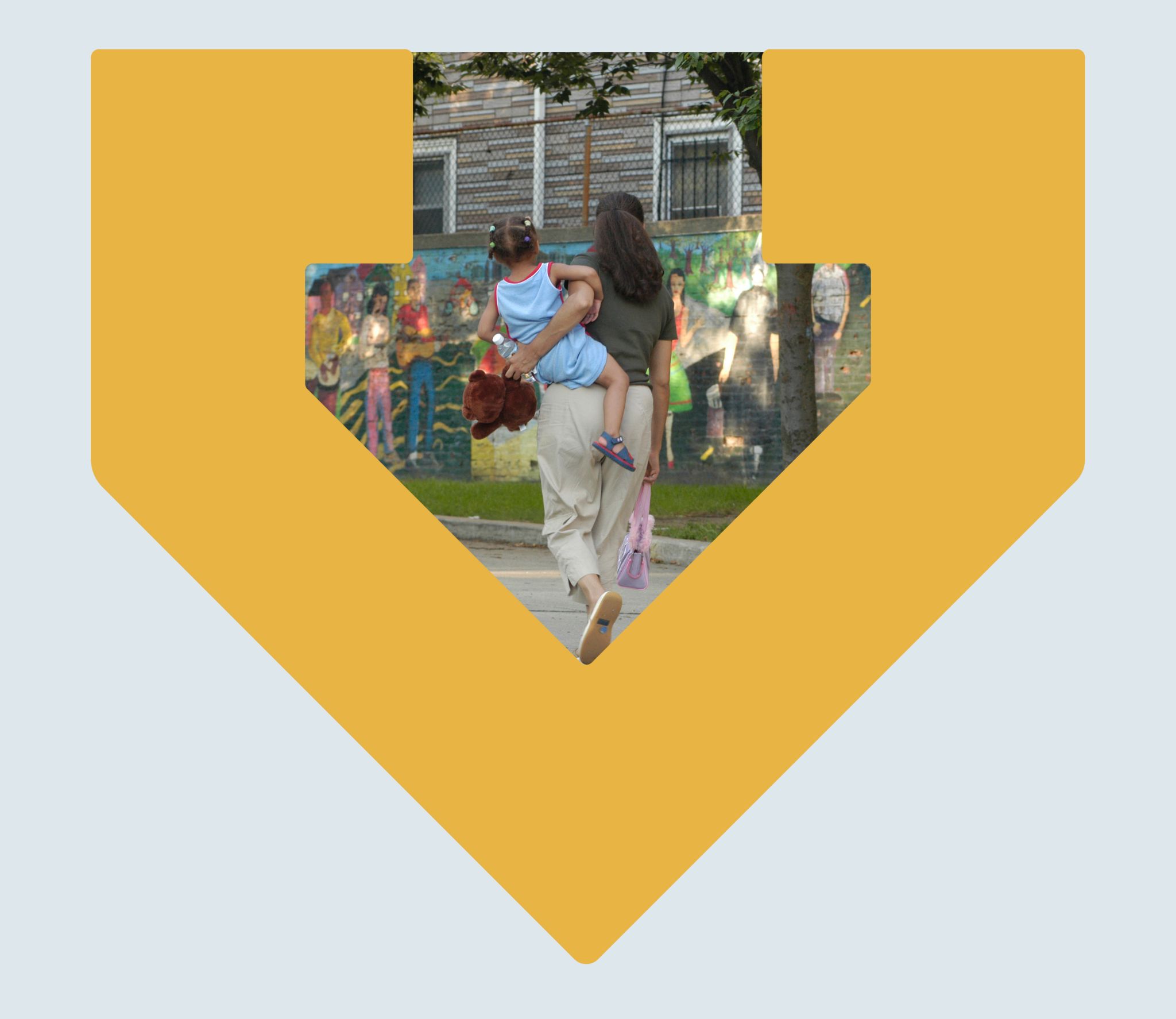
Advancing Community Wealth
Our Vision
BIPOC residents will own and control critical assets that contribute to community enrichment and sustainability. Black and Latino residents will build stability and individual and collective wealth through more equitable housing, business and creative systems.
Our Work
TBF’s investments in the last decade have spanned jobs, housing, entrepreneurship and the arts. Our Advancing Community Wealth pathway builds on these initiatives through these priorities:
• Growing opportunities for residents, entrepreneurs, artists, culture makers and workers—all of whom make our communities thrive and livable
• Advocating for equity and opportunity while investing in housing and business stability and wealth creation through our unique role as a convener
• Strengthening relationships with small businesses and entrepreneurs, individual artists and creatives, the public sector (state, city, municipalities), and grassroots and community-based organizations to minimize gentrification and sustain community-owned spaces for BIPOC Bostonians

The Winter 2024 edition of TBF News features a full exploration of our Advancing Community Wealth pathway, including our work to enhance housing affordability, improve equitable access to capital for businesses and homeowners, and advance community justice.
At a glance:
Advancing Community Wealth includes three focus areas that strengthen community culture, housing and businesses:

Affordable Rental Housing and Pathways to Homeownership
In the United States, housing affordability is core to individual and family wellbeing. Homeownership is also a key pathway to wealth building. This focus area supports increased housing affordability through an expansion of housing vouchers, impact investment for affordable housing production, and homeownership opportunities for BIPOC residents in greater Boston. It also invests. in fair housing and racial equity strategies that expand housing justices and housing opportunities for BIPOC residents, including a focus on Black wealth building.

Business Equity
To strengthen and grow a dynamic ecosystem of BIPOC-owned businesses, the Business Equity focus area provides strategic investments, convenes community partners and promotes innovative solutions. These will contribute to thriving communities for generations to come and will. support the economic mobility and wealth building of Boston’s BIPOC entrepreneurs and communities.

Community Preservation and Justice
To ensure that certain types of space across Greater Boston neighborhoods provide opportunities for security, growth and connection, this focus area includes preserving housing, small business brick and mortars, and cultural spaces for BIPOC residents, entrepreneurs and artists. These spaces serve as critical vehicles for BIPOC residents to continue to live, work and create in Greater Boston. They benefit all Bostonians in a more equitable and thriving local economy and culture.
Our Why
For BIPOC residents seeking to stay in their communities, affordable housing, cultural spaces, economic growth and home and business ownership contribute to the fabric of their well-being. The contributions of BIPOC residents, entrepreneurs, artists and creatives have created a rich ecosystem of community-led businesses, arts and cultural spaces and neighborhoods that has benefited all of Greater Boston. However, these ecosystems are fragile and have suffered from underinvestment. Although the region continues to attract residents, tourists and workers, we struggle with inequitable resources and opportunity for BIPOC, specifically Black, Latino and low-income communities.
Historic structural and systemic practices of racial discrimination have prevented thriving communities. Greater Boston’s history is fraught with racially discriminatory housing and lending policies that continue impeding housing security and homeownership pathways. Policies included redlining, where the Home Owners’ Loan Corporation excluded Black residents from accessing federally backed loans, and demolishing “undesirable” neighborhoods in favor of urban renewal. Restrictive zoning policies persist to this day. The consequences seep into all areas of a person’s livelihood, contributing to generational poverty.
A 2022 Boston Foundation study reported that “the region's chronic lack of affordable housing places a disproportionate burden on low-income families” and identified challenges and opportunities with equity in subsidized housing. Long-term low-income residents, particularly BIPOC, encounter steeper barriers when landlords raise rents and during inflation. When documenting the affordable housing crisis, the city of Boston reported that 65% of residents rent, with “more than half [putting] upwards of 30 percent of their income toward rent.”
High rates of gentrification and displacement create significant barriers to housing affordability, small business development and ownership and control of cultural spaces for BIPOC individuals and communities. As WBUR reported, “[artists] help make the neighborhood trendy, which attracts developers, which raises property values, which raises rents, until the original artists and residents are priced out.” Gentrification in Boston continues to push many people, including our artists, creatives and culture makers, out of the city—a reality that became clear during the COVID-19 pandemic as performance venues, cultural spaces and small businesses permanently closed.
These historical and structural barriers cascade into the Black and Latino business ecosystem. Data show that Black and Latino entrepreneurs face significant barriers to capital access because of racial wealth gaps, unfair credit assessments and racially biased treatment by loan officers. And, in 2018, only 6% ($4 million) of Boston city contracts (totaling $664 million) went to non-white-owned businesses.
As we raise our communities from the pandemic, we can strengthen where we live, work and unite in our dreams for future generations. Through TBF’s research- and data-driven strategies, we will leverage our position and resources to repair and build community wealth and advocate for a more equitable city.
Who are Boston’s culture makers, curators, and workers?
Greater Boston’s creative economy includes:
- Culture makers: Creators; writers; visual, recording and performance artists who create, collaborate and spread culture
- Culture curators: Individuals and collectives who re-imagine and protect creative spaces for underserved communities, all while presenting and amplifying art in all its forms
- Culture workers: Individuals working “behind the scenes” as the sector’s backbone (business, administration and facilities management)
Too often, philanthropy celebrates the consumption of art by affluent people rather than the ingenuity, value anfd expressive reflections that culture makers, curators and workers bring to elevate their communities. Community Wealth focuses on Boston’s creative economy as a human-centered effort, and the people fueling our creative economy deserve affordable housing, life-sustaining wages and benefits. TBF will advocate for the self-determination, control and/or ownership of creative spaces to benefit culture makers, curators and workers who make their neighbors’ lives more vibrant.
